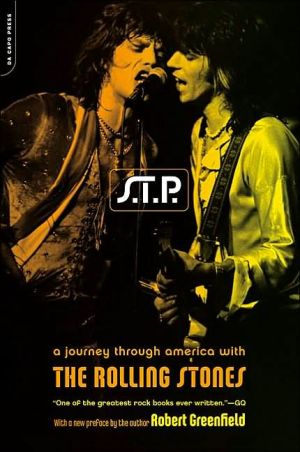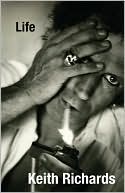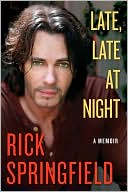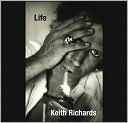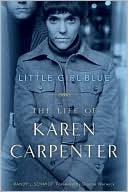S.T.P.
Thirty years ago, the Rolling Stones swept America, taking Exile on Main Street to Main Streets across the nation. Everyone held their breath to see what would happen; the Stones' previous U.S. tour had been a chaotic circus culminating in the infamous death of a fan at Altamont. And this tour (the "Stones Touring Party") was rumored to be wilder than ever: bigger shows in major arenas, with a far larger entourage and even more drugs. Robert Greenfield went along for the ride, and came away...
Search in google:
The classic insider's account of the Rolling Stones' legendary 1972 STP tour: "The best book ever written about the Stones, if not music in general."-Independent. LA Times ...exceptionally well-written and highly readable.
During the final week in May 1972 the weather in Los Angeles was unseasonably warm. In a place where there are no seasons and the days pass in neat succession, one late-night weather report being exactly like the six that preceded it, extremes in temperature are always welcome. The blazing desert heat of a selected week in July give Angelenos a chance to complain about summer and run to the beach. The no-breathing-possible hours when the Santa Ana blows in late August and September are a prelude to autumn. The cloudy, temperate days that pass for the rainy season in January are an attempt to portray winter in a town where there is no winter. The fluctuations in the fever chart of L.A.'s temperatures are like old friends, come round to remind you of the passing of time, of another piece of a year gone away somewhere, unnoticed.\ So the week of ninety-five-degree days that ended May, days that piled the brown gray smog layer upon layer over Beverly Hills and Hollywood, and crowded the white sand at State Beach with browned bodies, that had the cars parked three deep and at angles on the coast at Sunset and Chatauqua boulevards, brought the message that it was about to be summer again.\ America, a country that Los Angeles is sometimes said to be a part of, was entering its one hundred and ninety-sixth year of Constitution. In Vietnam, there was a war going on, and we were losing. Four hundred miles up the California coast from L.A. a black woman named Angela Davis was on trial for her life. The charges were murder and conspiracy and we (the citizens of California, as represented by the state's attorney) were losing. Ronald Reagan had been the governor of California for over six years. Richard Nixon had been president of America for nearly four years. No one knew if they were winning or losing. It took too much effort to find out.\ Few, if any, of these things, however, concerned one entire segment of the L.A. catalogue of subcultures: genus, music business; species, rock and roll; hereinafter referred to as the rockbiz. That week, rockbiz people had more important things on their minds, hearts, and checking accounts.\ In England, where some tradition still exists, a royal coronation is a signal event, a moment in time that people date their own lives around. They bundle up their children in scarves and woolies and take them out to see the parade so they may tell their children about it. They buy plates and cups and silver spoons with the date and portraits of the royal family on them to commemorate an event they know will not soon come again.\ No one thought to merchandise china with the faces of the Rolling Stones on it as they toured America during the summer of 1972. It was one of the few business oversights made.\ For, in the rockbiz, bands spring full blown from hypester's heads, do one tour and an album and return to the obscurity from which they came. Unlike the Broadway stage, the rockbiz does not bestow commercial favor on revivals of great old bands. Comebacks are usually unsuccessful and no band that has ever been number one has slipped and then made it all the way back to the top. The rockbiz is perfectly L.A., totally American, transitory, hard, cruel, full of paranoia, with all of it going on in the monstrous present only, the great now, and with such extreme rewards for those willing to accept its challenge and go out on the edge to make it.\ No, what the rockbiz cared about in May was not Angela Davis or the state of the nation of the blazing sunshine on the Strip, but a tour that was about to become the event of the season, and of the decade. And what the rockbiz buzzed about today, the youth of America would be listening to in four weeks, buying in five, and growing sick of in seven.\ But the Rolling Stones' 1972 tour was bigger even than the youth of America, if such a market can be transcended in the space of a single sentence. After ten years of playing together, the Stones had somehow become the number one attraction in the world. Absolutely. The only great band of the sixties still around in original form playing original rock and roll. Finally at the top of the sickening heap of hype and promotion that makes the music industry rank right up there with politics and used cars as a future career for your child to avoid.\ The Stones had been together for ten years. In the rockbiz, this is unheard of. Completely. They were royalty. No, even better, they were kings. Undeniably. By acclamation.\ And it was to America they came to receive their crowns.
\ LA Times...exceptionally well-written and highly readable.\ \ \ \ \ Philadelphia WeeklyThe definitive work...This is fly-on-the-wall reportage of the highest order...An unbridled masterpiece.\ \
